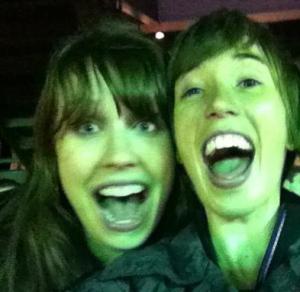I’m tired of the Oscars. My fascination with the movies I loved, and interest in the movies I appreciated (if not adored) is waning. Snubbery happens every year, and everybody talks about it forever. The Academy is never really all that plugged in with the best of the best, and women, minority and offbeat artists are almost always overlooked. There are so many other awards shows leading up to the Oscars—every actor in Los Angeles appears bored, bedraggled and hungover for three months solid. Worst of all: nobody gets any work done, and we forget the reason we’re all here in the first place.
This year, the movies that I saw fit neatly into two categories: made for the Oscars, and not made for the Oscars. I enjoyed The Imitation Game (Benedict Cumberbatch, obviously), but the sum of its parts was too obviously calibrated to hit the Academy’s sweet spots. The Imitation Game took complicated source material and bullied it into a linear, often sentimental story. I stepped back into the terrible fluorescent Cineplex lobby lighting, and most of the movie dropped right out of my head. Ditto Wild, Into the Woods—even Foxcatcher, which was more affecting, but bizarrely paced. I walked away from Foxcatcher distracted, unsettled—and a little bit hungry, for some reason.
But then, there’s Whiplash, Boyhood, Ida and Birdman—movies that are essentially love letters written by the film’s creators to their own characters. As the credits rolled, I was tempted stay put and scream rewind over and over again until I was asked to leave. I’m all about honoring movies for examining art, friendship, love and childhood in a meaningful way. But, more than anything else, I want to see more.
Frances McDormand took home this year’s Screen Actor’s Guild award for Best Actress in a TV Movie or Miniseries. In her acceptance speech, she expressed her thanks for the invite, and a sincere desire to “get some really cozy slippers, a box of See’s Nuts & Chews, hang out and watch more of our work.”
Go watch Olive Kitteridge, she said. I’m in a show at a theater up the street, also—come see that! This has been nice—now let’s get back to doing the real thing.
Frances McDormand loves what she does. She loves what other great actors, writers, directors and producers do. So do I. So do we all. That’s why we go to the movies and buy absurdly priced cable packages. And put our dumb opinions on the Internet.
The Oscars paint a shiny veneer over a the year in film, when most of the artists invited to the party have toiled and bled and cried and lost sleep and had panic attacks and gone without cake or booze for months to create a ninety-minute phenomenon that will knock our socks off. To make something that reminds us of our humanity, and celebrates it.
The audience is wider than Los Angeles’s own Illuminati. The work is the reward. This is true of almost any well-loved undertaking. The best things are those you work your butt off to achieve—so much so that you don’t really need or want or care about the accolades that come after it. I don’t want more acceptance speeches. I want more of everything else.
Also, have you seen Olive Kitteridge yet? Because seriously, you should.
–Elise













